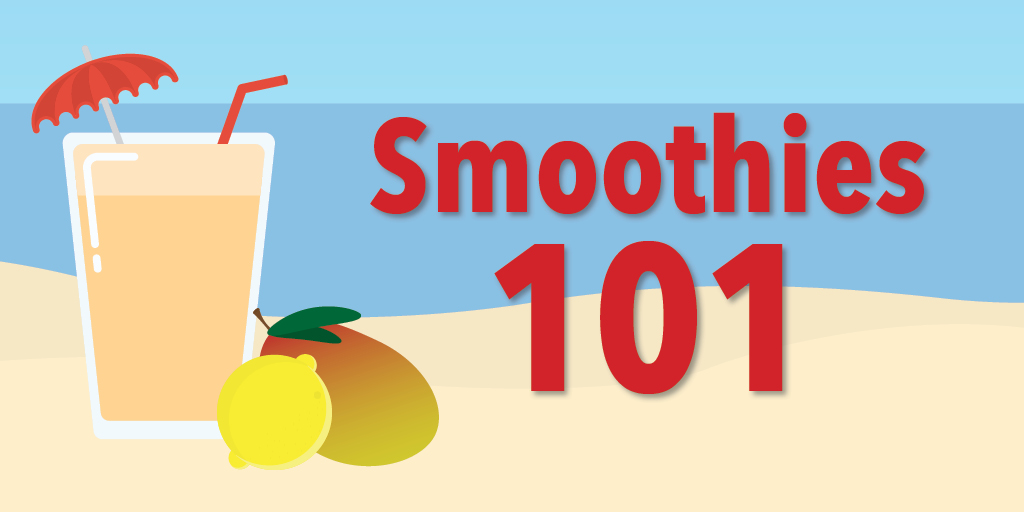Smoothies 101

Smoothies (if done correctly) are a great way to get a favourable portion of veggies, proteins, fruits, fibres and many other important nutrients in a few delicious gulps.
With very little restrictions to constitute what is considered a smoothie, the drink can be customized to cater to your tastes overall ensuring an enjoyable beverage all around, but without these very restrictions it is easy to create a drink that is far from healthy or nutritious.
Sue Brush, certified nutrition manager, professor of the food nutrition and management program at Fanshawe College and retirement resident management, sat down with the Interrobang to discuss the integration of smoothies into an everyday lifestyle.
Brush discussed the nutritional differences between smoothies and juice.
“A smoothie, as long as you have the pulp or the meat of it, you will have higher fibre content. Most smoothies using Booster Juice as an example, Booster Juice has about anywhere from 18 per cent to about 25 per cent fibre in them as long as it's the smoothie. The juice is a juice with natural sugars which is okay however natural sugars in excess will behave the same as refined sugars in your pop,” Brush said.
Brush stressed the importance of being individually aware of surroundings, especially when it concerned food as marketing and promotions may lead consumers to be under the impression an item is healthier than it really is.
“If people aren't informed, they figure this juice is good for me or this smoothie is good for me, let's drink two litres of it. Well, you better not have eaten, your carbs are up to the ceiling so that's the caution with them,“ Bush Said.
Peanut butter banana smoothie
Ingredients:
1 cup unsweetened almond milk
1 medium sized banana
1 scoop of chocolate or vanilla protein powder
1 tablespoon of natural peanut butter
6 ice cubes (optional)
With just 340 approximate calories, 26 grams of protein and 38 grams of carbohydrates wherein 6 grams are fibre, this smoothie is an excellent way to get your nutrient needs while severely diminishing the risk of going over your calorie or carb intake for the day when it comes time for sit down meals.
Almond butter berry smoothie
Ingredients:
1 cup unsweetened almond milk
� cup frozen blueberries
� cup frozen raspberries
1 scoop vanilla protein powder
1 tablespoon of natural almond butter
This smoothie contains 350 calories, 27 grams of protein, 32 grams of carbohydrates and 15 grams of fibre. Blueberries and raspberries are known to be an excellent source of fibre as well as being low in calories and sugar, offering a hint of sweetness without resorting to extra added sugar.
Avocado mango smoothie
Ingredients:
1 cup unsweetened almond milk
1/2 ripe avocado
1 cup frozen mangos
4 mint leaves
1 scoop vanilla protein powder
Containing approximately 418 calories, 18.5 grams of protein, 47 grams of carbohydrates and 16 grams of fi bre, this smoothie is high naturally good fats. These fats can help lower bad cholesterol. Although a bit higher in calories than the others, this smoothie is packed with a sensible portion of your daily nutritional needs.














